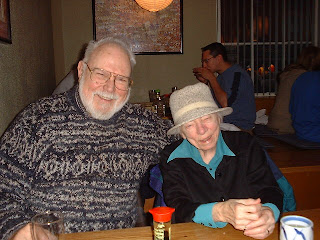Donald Morison Murray (1924-2006)

Donald Morison Murray, Professor Emeritus at the University of New Hampshire, died of heart failure in the morning on Saturday, December 30, 2006. He was 82.
After returning from World War II, where he served as a paratrooper, Don attended the University of New Hampshire on a G. I. bill, majoring in English. He became a journalist and, as an editorial writer for Boston Herald, received Pulitzer Prize at the age of 29. After a brief career as a freelance writer, he joined the University of New Hampshire faculty in 1963, where he established himself as one of the most prominent leaders of the writing process movement in composition studies.
His short 1972 article, "Teach Writing as a Process, Not Product" provided an influential catch phrase that stimulated the development of the process movement in composition studies. Various editions of A writer teaches writing, first published in 1968, also inspired generations of writing teachers.
Even after his retirement, he served as a writing coach to many while continuing to produce books as well as regular columns for the Boston Globe. He was also a neighborhood hero. Everyone knew Don Murray when he came into the Bagelry or Young’s Restaurant for breakfast.
He lost his second wife, Minne Mae, in February 2005, after years of fighting Parkinson’s disease. But he continued to cope with the joys and sorrows of his life by taking people out to dinner, by buying bigger and bigger computer monitors, by driving around in a new red Volvo, and by writing.
Don's favorite quote from Roman poet Horace (65-8 B.C.E.) was "nulla dies sine linea" (never a day without a line). He did indeed write everyday. He kept a log of the number of words he produced each day, taking particular pride in the fact that he kept up even in hospital bed.
In what has become his last Globe column, Don reflected on the reason he never took a job as an editor: “I'm a writer. I want to stay a writer. No promotions please.”
The Globe quotes Don’s daughter Anne as saying: "He basically lived through his writing. In some ways that was more real to him than his real life. Everything had to be sifted through his writing—the good and bad. His whole life was writing."
He was a writer indeed. Even those who have never met him will remember him through his writing.
http://www.unh.edu/journalism/donmurray.htm


No comments:
Post a Comment